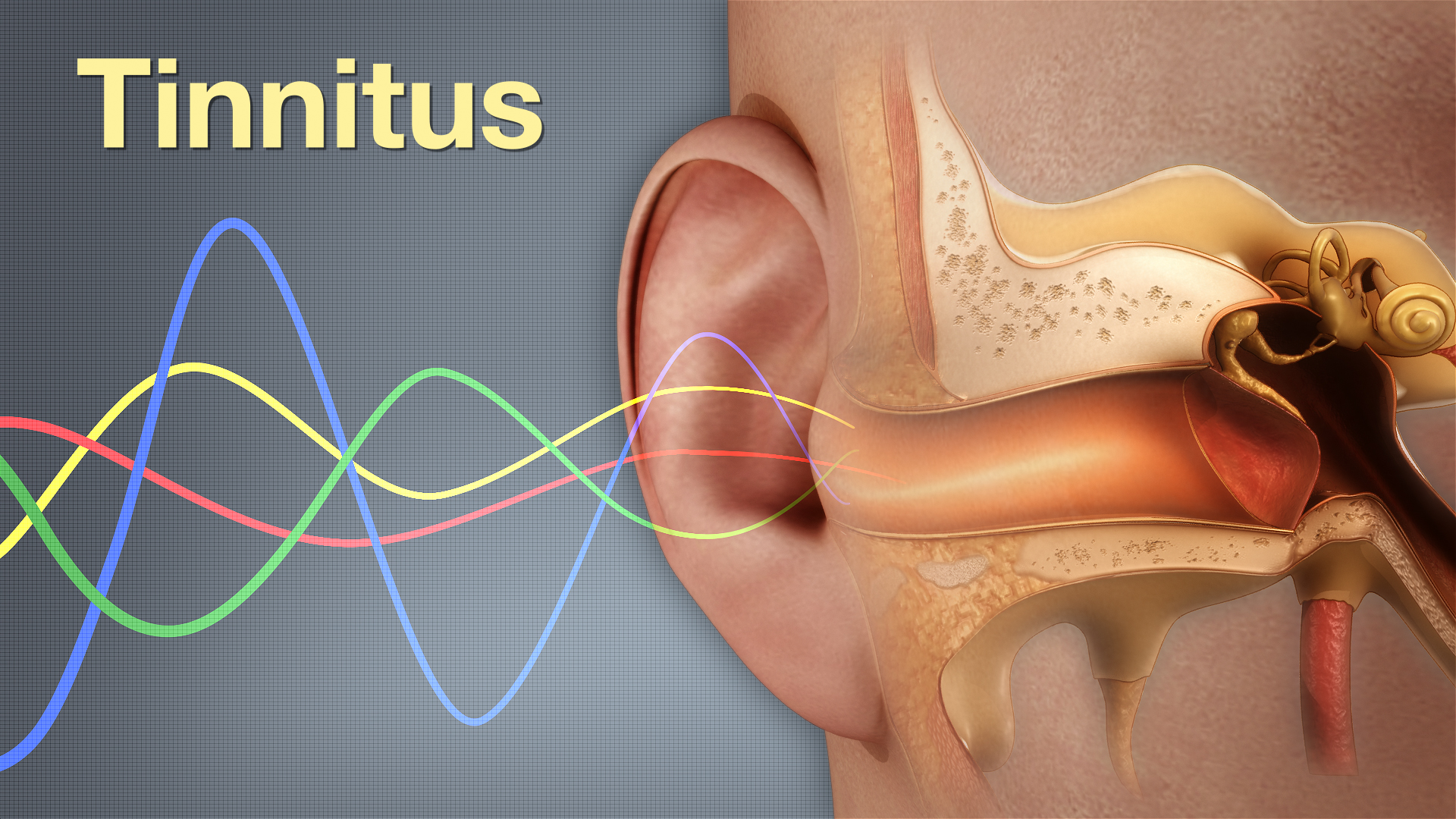Tinnitus is a medical condition in which the ear perceives a ringing or buzzing noise. Many people also hear roaring, buzzing, hissing, or whistling sound in their ears. This sound is produced in the ear without any external sound, thus also referred to as phantom sounds. Tinnitus is very frustrating for the patients, as it interferes with real sounds and can have a devastating effect on the patient’s life. Usually, it appears along with depression, stress, and anxiety. Tinnitus can be caused either in one or both ears of the patient. This disorder is usually common in older adults but can develop in people of all ages.

Types of tinnitus -
Tinnitus is usually of two types- objective and subjective. Objective tinnitus is a rare type of tinnitus in which the patient, as well as other people, can hear the buzzing sounds. This condition arises due to the presence of abnormal blood vessels in and around the ears. Even heartbeat can be heard via distinct pulsing sound by the patient.
Subjective tinnitus is the other type which is very common, in which the patient hears roaring, ringing, and other sounds.
Symptoms
The only symptom of this disease is - the person will be able to hear different kinds of sounds. These sounds can be as follows:
- Ringing
- Clicking
- Hissing
- Humming
- Buzzing
- Roaring
It is often observed that this noise or sound becomes quite loud such that patients are unable to concentrate or hear external sounds. This disorder can be recurring in nature or permanent.
Causes
The major cause behind the occurrence of tinnitus is the damage of the middle ear or inner ear. Some of the prominent reasons are:
- Aging: Tinnitus can appear as people become old, starting with 60 years. This can also be due to hearing loss, which in medical terms is known as presbycusis.
- Earwax blockage: Sometimes dirt and bacteria traps and blocks the ear canal, which eventually becomes very hard to wash away. This could lead to loss of hearing and irritation in the eardrum, through which this ear disease can originate.
- Changes in ear bone: When bones in the middle ear of the person stiffens, tinnitus can originate. This type of tinnitus is usually hereditary.
- Loud noise exposure: Loud noises from heavy equipment such as chain saw, firearms can lead to hearing loss in patients. Listening to loud music on earphones, iPods, mp3 players can also induce hearing problems in people. Long term exposure to such loud sounds can result in getting affected by tinnitus either for the shorter or longer term.
- Meniere’s disease, Temporomandibular joint (TMJ) disorder, neck or head injury, acoustic neuroma, eustachian tube dysfunction, muscle spasms of the inner ear can also lead to this common ear issue.
- Sometimes blood vessel disorders such as atherosclerosis, head and neck tumors, turbulent blood flow, malfunction of capillaries, and high blood pressure can cause another type of tinnitus, known as pulsatile tinnitus.
- Medications such as antibiotics, cancer medications, water pills or diuretics, aspirin, quinine medications, antidepressants, herbal supplements, nicotine, and caffeine are responsible for the tinnitus.
Treatment
As per medical resources, doctors usually recommend the following treatments :
- Drug therapy: By recommending tricyclic antidepressants and anti-anxiety medications, doctors aim to reduce the buzzing or ringing in the patient’s ear. It is to be noted that this treatment may induce side effects such as constipation, nausea, vomiting, blurry vision, etc.
- Cochlear implants: These implants are recommended by the doctors to restore lost hearing.
- Hearing aids: Sound amplification can also help such patients, hence it is recommended by the doctors.
- Lifestyle changes: These patients are usually recommended by doctors to manage their stress as it worsens off the situation. They also recommend refraining from loud noises to reduce the severity of the disorder.
Disclaimer: The information in no way constitutes, or should be construed as medical advice. Nor is the above article an endorsement of any research findings discussed in the article an endorsement for any of the source publications.








